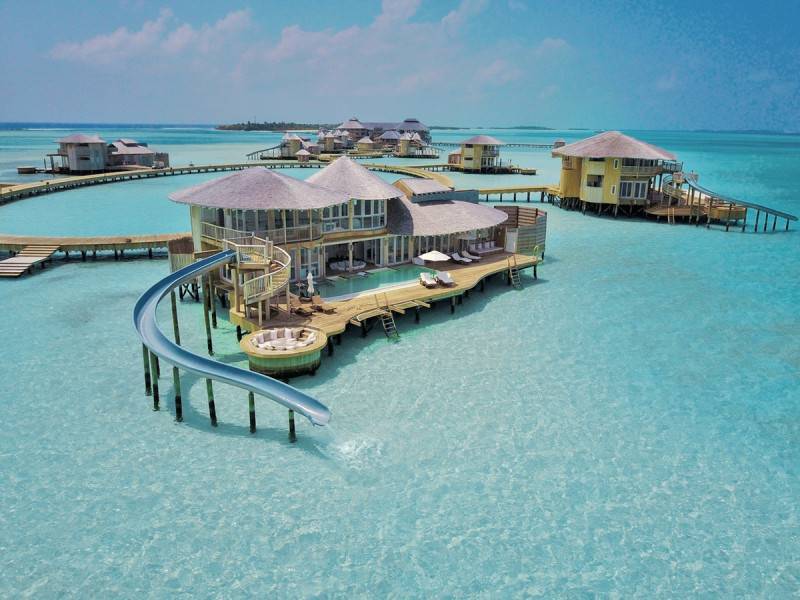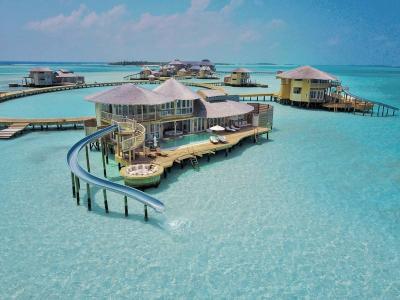Joy Levy, a luxury travel advisor at "Embarak Beyond," was assisting two clients in planning their long-awaited honeymoon. The couple wanted to visit Zambia, Zimbabwe, and South Africa for a once-in-a-lifetime trip to see wildlife, Victoria Falls, and stay at some of the best lodges in the region. The clients were willing to pay tens of thousands of dollars to make it happen. However, the cost of the PCR test became a significant obstacle to their desired trip. Each country required tourists to take the aforementioned test and confirm that they were not infected with COVID before entering the country, within 72 hours. The remote lodge the couple chose in Zimbabwe stated that the only way they could arrange for a PCR test was by going to a doctor's clinic, where the test would cost them $6,000. According to Levy, who ultimately rearranged the itinerary to avoid the exorbitant costs, "I could have hired a plane to go to the doctor, and that might have been less expensive."
In the midst of the pandemic, traveling to a remote place, such as the savannah in Zimbabwe or the Amazon rainforest, is entirely different from undergoing COVID-19 testing and the paperwork needed to spend some time there, even with the assistance of an experienced travel agent. This is particularly true for clients hoping to visit more than one country before returning home, leaving some returning travelers shocked by the high prices, although this is not always the fault of travel service providers.
Tour operators and resorts use planes, boats, and cars to transport tests to laboratories within the required delivery times. This is considered a way to comply with rules that are not always as straightforward as they seem. However, sometimes that is not enough to convince international clients, often in regions where these businesses are crucial to their sustainability.
It is also difficult to conduct rapid antigen tests in many countries, especially in places with limited access to healthcare, leaving travelers with few options other than the expensive and time-consuming PCR tests. For its six lodges and camps in Tanzania, the luxury eco-friendly safari operator "Singita" had to fly government-approved COVID testing teams back and forth on planes and small vehicles to collect nasal swabs for delivery to Dar es Salaam, over 500 miles away.
Initially, this cost the company $500 per test, a price that was passed on to consumers. However, recently, Singita has managed to reduce that cost to $300, thanks to the opening of a specialized laboratory for COVID-19 tests in Arusha, about 375 miles from Serengeti National Park, along with careful coordination of flights carrying lab crews and incoming and outgoing passengers.
Due to the time required to transport tests to and from the laboratory, Tanzanian lodges had to impose a minimum three-night stay, costing around $2,500 per person per night. Typically, clients stayed for two nights and then moved on to another location. Joe Baileys, Operations Manager at Singita, noted, "It was extremely complex, and we had to devote two full-time people to logistics planning for PCR tests; it cost the company a lot of work hours."
Kruger National Park presents another challenging location for the safari operator, as the company runs two camps in South Africa near the Mozambique border. Here, Singita charges about $262 per test to help cover the cost of driving a four-hour trip to deliver samples to the laboratory. Baileys explained, "We have guests arriving on different days, and now you have to send someone back and forth every other day to take the sample to the lab. If you accumulate those costs over six months, you can imagine how high and unpredictable they are." As a result, the company is currently contributing to cover the costs of building a new laboratory near their properties for use by both locals and guests.
On the other hand, guests can cover costs through home testing kits. For instance, American travelers can use the BinaxNOW home test for COVID-19, which contains two cards. The box of six FDA-approved BinaxNOW tests for emergency use costs $150. American travelers can also pack the Ellume home test for detecting the virus, priced at $45 each.
However, not all tests from these companies are FDA-approved, and there are many fine details regarding how to use these tests. It is worth noting that these tests are conducted via video call with a remote healthcare official who monitors the testing process, requiring at least a good internet connection (which can be challenging on safari trips, for example). There are also legal procedures involved, as the Centers for Disease Control and Prevention require that the test be "authorized for use by the relevant national authority" in the country in which it is conducted. Additionally, there is no guarantee that local governments will accept these tests for entry into their territories or to continue traveling through them; thus, these tests may not solve the dilemma of re-entering the United States, unless one is extremely fortunate.
Costs for PCR testing can be steep, even for some travelers dealing with more straightforward logistics. For example, Deborah Gillis, also a travel advisor at Embarak Beyond, worked with a couple planning a rare vacation to Southern Africa, traveling to South Africa, Zambia, Botswana, and the Seychelles over two weeks. Gillis explained, "They were determined to stay in all these places since they are close to each other," adding that the couple hoped to have a child next year, saying, "Who knows when they'll return?" However, each time they crossed a national border, they would need to undergo new testing, with prices ranging from $175 to $340 per person, potentially exceeding $2,000 over the trip. Gillis noted that her clients were considering abandoning their plan entirely, evidencing the numerous barriers hindering economic recovery for the lodges along the route.
Some companies are willing to absorb the cost of COVID-19 testing as a way to return to business faster. In the Maldives, the "Soneva Jani" and "Vela Private Island" resorts collaborated last year to open a COVID-19 testing center at Maafaru Airport in Nuno Atoll. The center serves both tourists and locals and was built in 30 days. The investment included purchasing Roche LifeCycle equipment estimated at about $41,000 and capable of processing up to 700 tests daily, in addition to covering staff salaries from the nearby AKD Hospital to operate the laboratory.
At the Soneva resort, where over-the-water villas with water slides and retractable roofs can cost over $4,000 per night, a healthcare team member visits guest villas to conduct nasal swabs and throat tests. The tests and swabs are sent via speedboat to the nearby laboratory for analysis. Soneva founder and CEO Sono Shivdasani stated, "We provide free testing as part of our commitment to offering a safe environment for all our guests and staff."
Cruise companies are considering a similar approach due to their geographical distance from laboratories. However, the only company currently committed to this is "Viking Ocean Cruises," which has invested in building large laboratories staffed with three technicians on each of its six cruise ships, currently sailing in locations like Iceland and Croatia. Torstein Hagen, the company’s chairman, revealed, "We spend a lot on PCR testing, almost as much as we do on fuel, with costs between $15 to $20 per person a day. It amounts to millions of dollars." On the positive side, Hagen noted that the investment allowed him to return to operation quicker and at a greater scale than all of his competitors, some of whom are just now returning to business after several months since Viking's first post-pandemic sailings began.
On the other hand, not all remote testing costs are unaffordable for visitors. For example, guests aboard the recently launched "Aqua Expeditions" riverboat, which accommodates 20 passengers, pay only between $30 to $40 for rapid antigen tests that crew members administer on board at departure in Iquitos, with results available within minutes. (The same tests can be conducted at the end of trips as well, for returning to the U.S. or continuing to other countries.) For its guests in Machu Picchu, "Intrepid Travel" works with laboratories in the major cities of Lima and Cusco, charging a maximum $100 per test.
In this context, the price disparity has been so significant that the International Air Transport Association requested governments in July to take action against price manipulation of COVID-19 testing, citing a particular survey in which 70% of respondents described testing costs as a "significant barrier to travel." According to the U.S. Department of State, antigen and PCR testing in Finland ranges from $234 to $352, while in Sweden, testing costs can range from $60 to $360. In the UK, the average price for tests is around $100 but may reach as high as $575. This poses a significant burden for locals who need to undergo three tests for each round trip out of the country, especially if traveling with family.
Thus, the clear paradox is that what was meant to help maintain safe travel in the pandemic era is also proving to be a significant hurdle for the $9 trillion travel economy, until testing costs and availability are aligned.




